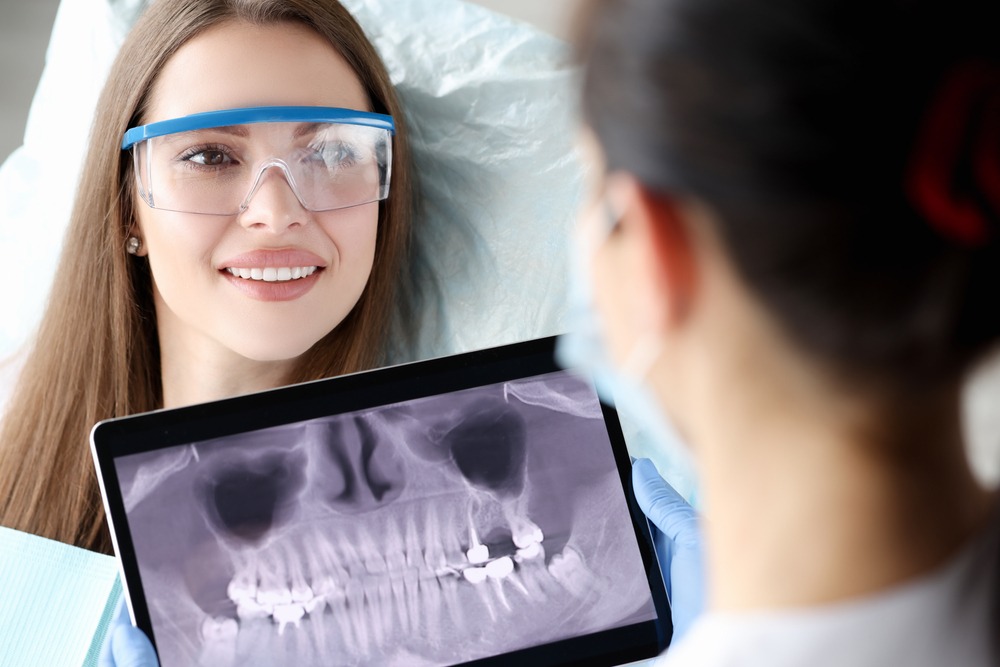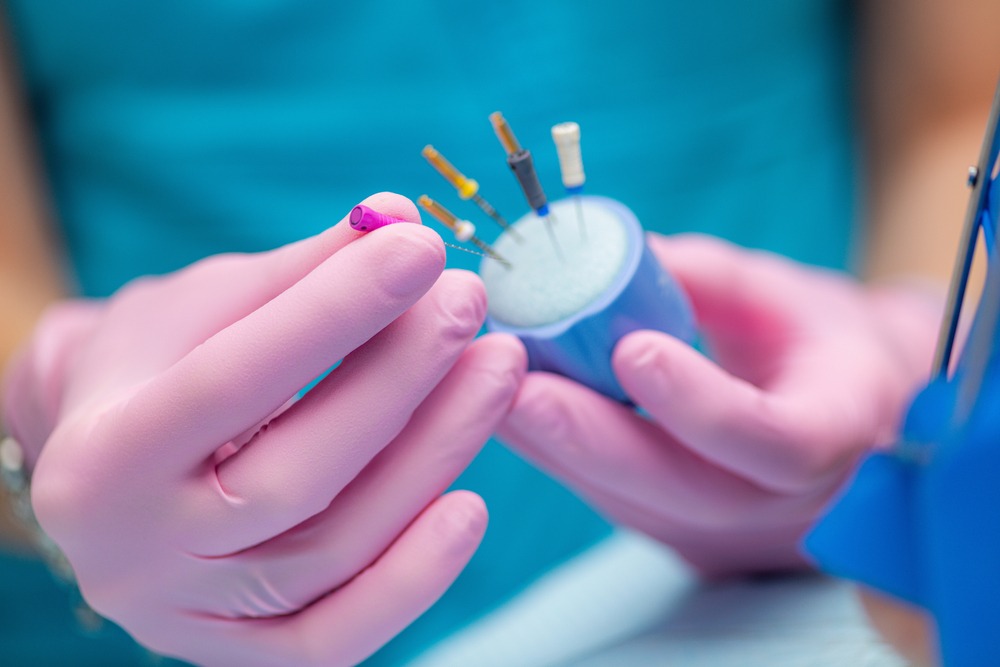Endodontics in Chicago, IL
What Does an Endodontist Do?
American Dental is not just the most trusted dental team in Chicago, but a professional endodontist who can provide endodontic care to manage pulp problems, oral care concerns, toothache, and all your dental care needs to ensure that your mouth is as healthy as possible.
First and foremost, our Chicago endodontist is a dental professional who specializes in tooth pain, infections, and diseases.
Their training focuses on toothache causes, pulp problems, long-term oral care issues, and other dental care issues that might impact your teeth.

In this way, our best endodontic experts can diagnose your tooth pain, perform root canals, and try to save infected or decaying teeth. When you visit us, we can provide a myriad of different specialized treatments that ensure you get fantastic results, including:
- Diagnose potential problems inside the tooth (the area known as “the pulp”)
- Use various X-rays and other scans to identify what might be the problem
- Check for inflammation or infections throughout the tooth’s pulpy area
- Try less invasive treatments first, such as using antibiotic care
- Perform a root canal to remove the tooth’s nerve and pulp to minimize pain
Note that a dentist can also perform this procedure, but the best endodontist in Chicago can handle this dental procedure more effectively. Endodontic dental care professionals receive not just four years of dental school training but 2-3 years in a post-graduate residency program focusing on this specific oral treatment. In this way, they’re more than ready to help you.
Reasons You Should Visit an Endodontist
American Dental can provide you with support from our high-quality endodontist in Chicago. Our team of oral surgeons in Chicago is the best in the area and can provide high-quality endodontic and dental care to handle your pulp, minimize your toothache, and provide many other benefits. But how do you know when to visit us? Here are a few times it’s smart to contact our team:
Excessive tooth pain (likely caused by inflammation or damage to your tooth’s interior)
Sensitivity to heat and cold that makes it very uncomfortable to eat or drink
Bacterial infection throughout the pulp of your teeth that causes a lot of pain
Severe tooth injury, including dislodging it from its socket or falling out entirely
Chipped or fractured teeth that might expose you to potential damage and infection
During a root canal (the most common endodontic procedure), you’ll receive a local anesthetic to numb the mouth and minimize your pain. The endodontist then opens the crown of the tooth, removes the damaged pulp and nerve, and fills the tooth with a rubber substance that keeps it strong. Then, they had a filling on top that kept your tooth as strong as possible.
Schedule an Appointment With Our Endodontists Today!

If you’re looking for the best endodontist or pediatric dentist in Chicago, our team at American Dental is here for you. We can not only help with endodontic problems like pulp damage and toothache concerns, but our oral dental care can help with a myriad of other problems.
We offer periodontal care, work with orthodontists on braces, and can even help you with general dental care. Our goal is to ensure that you get the fantastic dental therapy you deserve. Make sure that you call ahead to set up an appointment to ensure you get the care you need. We're willing to work with most dental insurances, so just let us know which you have and we can help!
Contact Us to Learn More
American Dental is the best Chicago endodontist and can provide help for a variety of dental care issues. Whether you have endodontic issues, problems with your pulp, a toothache, or other types of oral problems, call the best endodontist Chicago has to offer at 773-284-1645. Our team will help you figure out what kind of care makes the most sense for your needs.
ROOT CANAL
Endodontics focuses on the treatment of the dental pulp - or interior of your teeth. If this area of the tooth becomes injured or diseased, it often results in serious tooth pain and sensitivity.


